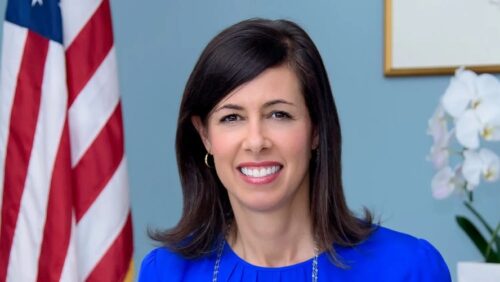
9/25/23 – TVTech
Impact on broadband access during pandemic among reasons for bringing it back, Rosenworcel says
Nearly six years after the FCC repealed net neutrality, the commission is preparing to revive the concept, which regulates the internet to ensure equal access to both enterprise and consumers.
In a speech to the National Press Club today, FCC Chairwoman Jessica Rosenworcel said the commission would make details of its proposal public on Thursday and cited the impact of the Covid pandemic—and how the lack of universal broadband access made life more difficult for citizens who had no or poor access to high speed broadband—as among the reasons for bringing net neutrality back.
“[The pandemic made] it crystal clear that broadband is no longer just ‘nice to have,’” the chairwoman said, ”it is essential infrastructure for modern life. No one without it has a fair shot at 21st century success. We need broadband to reach 100% of us and we need it to be fast, open and fair.”
The announcement of the proposal comes a day after Anna Gomez, the seventh and final commissioner was officially sworn in. Gomez, a Democrat, will most likely be the tie-breaker if and when the proposal comes up for a vote.
In 2015, after more than a decade of debate over net neutrality, the FCC, under the Obama administration, adopted rules that would enforce openness and equal access to broadband under the net neutrality concept. Those rules however were repealed two years later under the chairmanship of Ajit Pai and upheld by an Appeals Court in 2018.
In her comments today, Rosenworcel said the repeal of net neutrality, “put the FCC on the wrong side of history, the wrong side of the law, and the wrong side of the American public.”
“It was not good then, and it makes even less sense now,” she said. “It determined that this infrastructure—which the pandemic proved is so essential for modern life—needs no oversight, and I think that’s just wrong.”
Calling the proposal “a first step,” the chairwoman said that she will invite public comments about how restoring Net Neutrality rules “can help ensure Internet access is fast, open and fair.”
“We will need to develop an updated record to identify the best way to restore these policies and have a uniform National Open Internet standard,” she said.
The proposal will call for using Title II in FCC rules to reclassify the internet as an “essential service,” placing authority to place internet regulation under the commission’s purview.
“Reclassification of broadband as a Title II service would make the FCC’s work more efficient and effective, and consumers more confident that their internet access is fast, open and fair,” she said.
The chairwoman continued: “Title II is the part of the law that gives the FCC clear authority to serve as a watchdog over the communications marketplace and look out for the public interest. Title II took on special importance in the net neutrality debate, because the courts have ruled that the FCC has clear authority to enforce open internet policies if broadband internet is classified as a Title II service and providing a strong foundation for net neutrality rules is a good reason to support classifying broadband internet as a Title II service.”
Repealing net neutrality has not only hindered more equitable access to broadband, it has also led to numerous concerns over cybersecurity, emergency services, robocalls and privacy, Rosenworcel said. She also noted that when the rules were repealed, advocates for repeal said that states could replace national rules, but that is not a well thought out solution.
“When you are dealing with the most essential infrastructure in the digital age, we benefit from having a national policy,” she said.
Rosenworcel took issue with those who think the repeal of net neutrality has had no identifiable impact on equitable broadband access.
“They say nothing bad has happened, but again, states stepped into the void created by the FCC retreating from net neutrality,” she said. “I think it’s time for Washington to step back in with a national policy to make sure internet access is fast, open and fair.”
The previous fight over net neutrality led to threats both physical and verbal, including a bomb threat during an FCC hearing. Rosenworcal had a warning for both sides of the issue who might want to make their thoughts known outside of the usual comment process.
“I recognize that those who go to these extremes are not listening to or reading these remarks,” she concluded. “But those of you who set the tone for the debate, make some noise, raise a ruckus, but keep it in the lines.”
